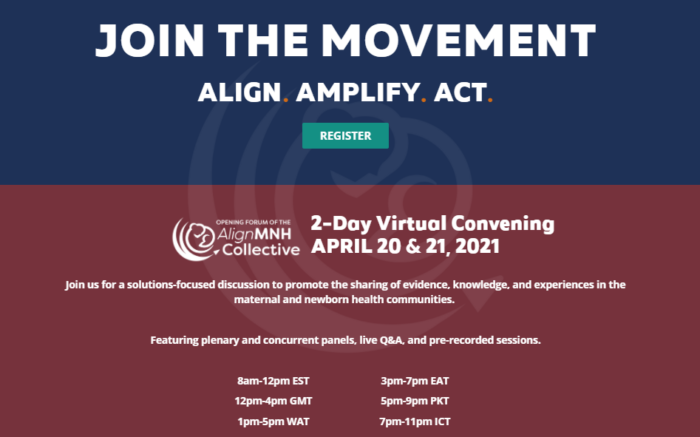Embarking on a Decade of Action to Promote the Mother-Baby Dyad
Each year, nearly two million infants are stillborn, and almost as many children die within their first month of life as do within their first five years. And, despite a decline in maternal mortality over the past decades, there were still nearly 300,000 maternal deaths in 2017, most of them in sub-Saharan Africa and Southeast Asia. Clearly, a focus on the mother-baby dyad and the complementary needs of mother and child is critical. With only 10 years left to achieve Sustainable Development Goal (SDG)-era targets, there is an urgent need to accelerate progress toward improved maternal and newborn health outcomes and prevention of stillbirths. The MNH community must come together to address entrenched obstacles such as inequities in service delivery, low coverage of cost-effective interventions such as exclusive and early initiation of breastfeeding, and lack of quality care, including respectful maternal care.
Yet, barriers to harmonize support exist: Often, global maternal and newborn health (MNH) efforts appear disconnected; there is much information available but no central location for accessing reliable resources; and there are too few opportunities for MNH stakeholders to engage, discuss implementation experiences, review progress, and learn what is working in different country settings.
Launched in November 2020, AlignMNH: Collective Action for Maternal Newborn Health is a platform through which the MNH community will be able to share evidence and programmatic experiences, track progress toward goals, identify opportunities and gaps, cultivate networks, and progress rapidly along pathways to impact. AlignMNH takes a holistic, integrated approach, using “maternal newborn health” in recognition that mother and baby cannot be separated as we work to ensure they not only survive, but thrive.
AlignMNH intends to bring together national and subnational leaders and policymakers, implementers and program managers, scientists and researchers, as well as global agencies and donors to nurture a culture of information sharing and action behind which the MNH community can align as we drive toward 2030. The AlignMNH platform is comprised of three services: the AlignMNH Collective, a regular, predictable series of convenings intended to promote knowledge sharing and collective action; a web-based knowledge hub to provide a centralized location for countries to access and share resources, learning, events, and communities of practice; and collaboration with the U.S. Agency for International Development MOMENTUM Country and Global Leadership program, partners, countries, and technical working groups to plan, course correct, and drive action.
The Opening Forum of the AlignMNH Collective will be held April 20 and 21, 2021. This solutions-focused forum will feature plenary and concurrent panels, live question and answer opportunities, and pre-recorded sessions. Highlights include data-driven discussions of country challenges, solutions, and progress; and the effect of COVID-19 on services for mothers and newborns, with a lens on health system resilience, policymaking, and equity. Finally, networking breakout rooms will give attendees the opportunity to build relationships and drive forward conversations toward establishing shared goals and measures for mutual accountability.
This virtual convening will set the tone for a decade of dialogue, ongoing engagement, and collective action to drive progress for maternal and newborn health and well-being and prevention of stillbirths. Outcomes from the forum will inform the International Maternal Newborn Health Conference (date to be confirmed pending guidance on international travel and mass gatherings) and additional focused convenings and discussions.
At the November launch, Dr. Queen Dube, Chief of Health Services at the Ministry of Health Malawi, and my Steering Committee co-chair, noted that if we continue on the current trajectory, it will take 110 years to reach SDG targets. This is unacceptable. There is a tremendous amount of research ongoing, and the pandemic has taught us huge lessons about service integration and access to care. Join us April 20 and 21 as we strategize and take action to change this trajectory and reduce maternal and newborn deaths. We have much to learn from one another.


